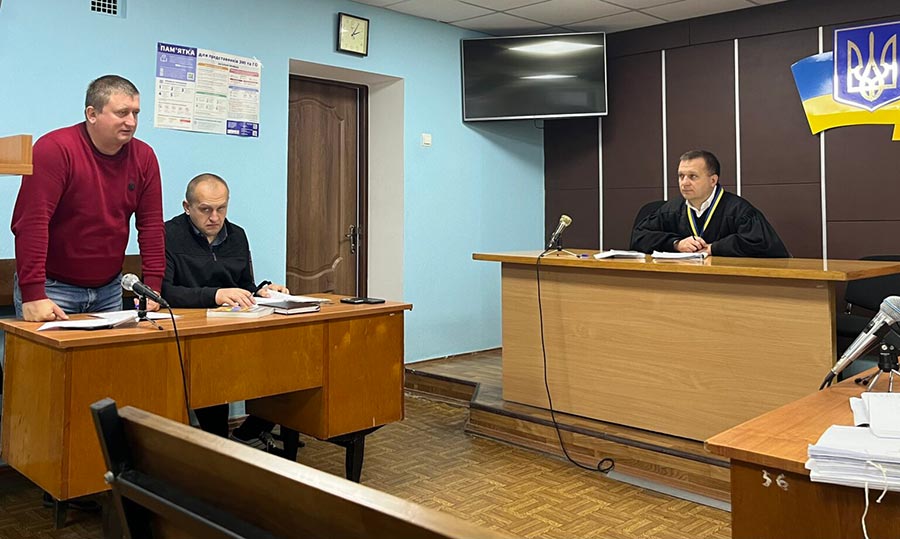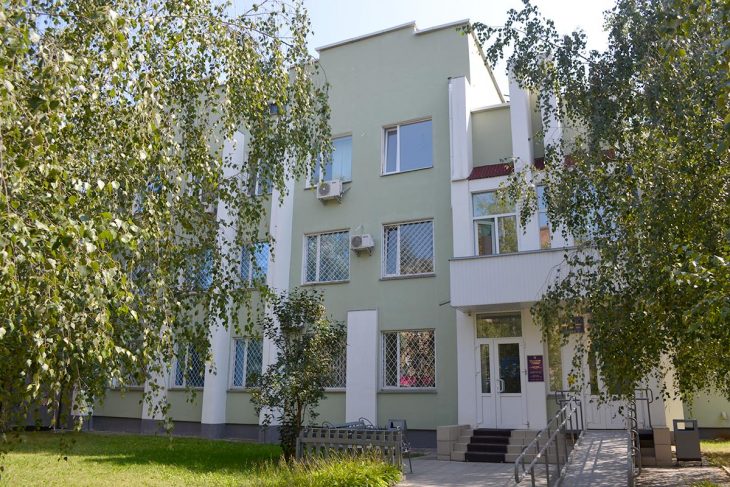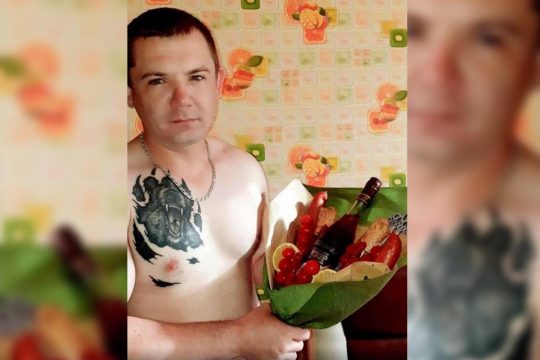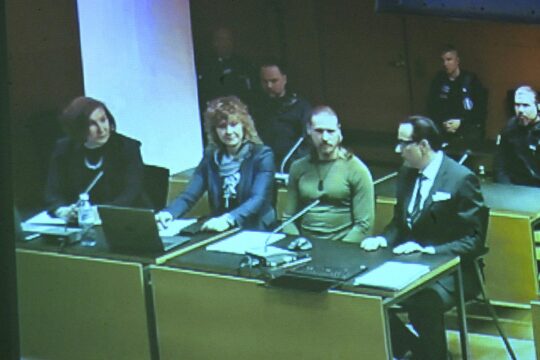Today the city has regained its peaceful green parks, covered by the leaves of autumn. But at the beginning of March, the Russian army occupied nearby settlements during the blockade of Chernihiv – a northern Ukrainian city half way between the Belarusian border and Kyiv, on the road taken by a 64 kilometre column of Russian tanks in the first days of the invasion.
The Novozavodsk District Court in Chernihiv, active in prosecuting war crimes like courts in all liberated areas, is now getting organized to consider the case of two Russian servicemen who allegedly terrorized people in their own home for three weeks.
Investigators have identified them as soldiers of the 80th tank regiment (military unit No. 87441), stationed in the city of Chebarkul, Chelyabinsk region of the Russian Federation. On March 9, thirteen of them forcibly moved into a house where an elderly woman and her two grandchildren lived. Charged in this case, 30-year-old Commander Ruslan Kuliev was the superior of the occupiers.
From one of the local Russians, investigators learned that the hostess's grandson had previously served in the Ukrainian National Guard. This became a reason for bullying. The young man was driven out into the yard and the second defendant in the case, 22-year-old Sergeant Andrei Shudin, punched him in the chest at least four times on Kuliev’s instructions, according to the charges. From March 9 to 13, the boy spent four frosty nights outside with his hands tied and without outer clothing.
Repeated rape
The occupiers reportedly made hell inside the house for the grandmother and her 16-year-old granddaughter. According to the investigation, 30-year-old Kuliev repeatedly harassed the young girl at night. When relatives called out to him, saying that she was still a teenager, Kuliev answered that she looked as if she were in her 20s.
According to the indictment, on the first night they came in, between 2 and 4 a.m., the Russian Commander pushed the victim on the bed, sat on her legs and hit her on the head with a pistol, threatened to kill her relatives in case of refusal, and later handed her over to other Russian soldiers for rape. The girl broke free and loudly called for help, scaring the aggressors. The next night it happened again.
“He lay next to me, saying ‘I won't rape you, but let me touch you’. That's how he took me [by the throat] and said ‘if you scream when I'm harassing you, I'll twist your neck. If you don't give voluntarily, then I will kill the old woman and your brother and everyone will rape you,” the victim testified in the programme “Television Toronto”.
This lasted until March 18, when the victim disappeared from the house. As it turned out later, her aunt managed to take her away. The Russians, discovering the girl's absence, interrogated the brother, asking where his sister was hiding. According to the case file, Kuliev hit the boy on the legs with a billiard cue, threatened to kill him and shot twice in the direction of the legs. On March 21, a Russian soldier pointed a hand-loaded grenade launcher at him. Having not achieved their goal, the Russians apparently left the boy alone and lived in the house for about a week until they left at the end of March.
According to police officers, on April 1, the 80th Tank Regiment left the Chernihiv region and moved back to the territory of the Russian Federation, where it is currently staying. Shortly after they left, the victim's mother filed a complaint for sexual violence.

Court’s calls unanswered
Although they surprisingly left their contacts behind them, the two Russian soldiers unsurprisingly did not answer the court's calls.
"The Russian soldiers, when they left the house, for some reason left their contacts to those they lived with -- phone numbers. They said ‘if other Russian soldiers come after us, give them our contacts, let them contact us and we will explain to them how to live here’,” prosecutor Ihor Kondratyuk, who represents the case in court, told Sudovyi Reporter.
Chudin, who beat the boy and kept him outside in handcuffs while Kuliev was harassing his sister inside, wrote down his phone number on a piece of paper.
The criminal case came to court on July 27. And two months later, Judge Volodymyr Pavlov decided to start the trial in absentia, according to the trial proceedings that apply in Ukraine when the accused is absent. Three times, the two defendants have been called to appear in court in the official gazette and on the website of the Novozavodsk District Court of Chernihiv. Therefore, Chudin and Kuliev are considered notified.
In the meantime, lawyers from the Center for Legal Aid have been appointed to defend them. The defenders have not raised objections to the accusations so far.
Video testimony for the victims
Prosecutor Kondratyuk asked that the case be considered in closed session for the part concerning sexual violence against a minor. He also indicated to us that the girl's brother, who is both a victim and an eyewitness to the brutality of Russian soldiers, and the aunt, who managed to take the girl away from the occupiers, should testify in court.
"Regarding the girl, we will file a request to use a video interrogation of her, so as not to traumatize the child again," said Kondratyuk. Martial law, introduced in Ukraine on February 24 following the Russian invasion, allows testimony of victims and witnesses recorded on video to be used as evidence in court. "I personally interrogated the girl. We will include this video in the court session," the prosecutor explained to Sudovyi Reporter.
It is not planned to summon to court the grandmother, who also witnessed these events in the house. According to the prosecutor, they decided not to disturb the 75-year-old woman due to her age.
And although the trial will be held in absentia, Kuliev and Chudin will still be summoned to court every time a new hearing is programmed on their case, formally giving them the opportunity to participate in person.
Russian servicemen face 8 to 12 years in prison for violating the laws and customs of war. Their sentence is expected to be handed down in mid-November.
This report is part of a series on war crimes, produced in partnership with Ukrainian journalists. A first version of this article was published on the Sudovyi Reporter website.








